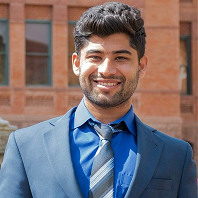Asif Khan Turk
PESHAWAR: In an exclusive conversation with the daily Sunrise Today, Zeeshan Sayed Shah, Founder & CEO, GreenWend Energy (Pvt.) Ltd. and SunSaviour (Pvt.) Ltd., a leading solar energy solutions group of companies, emphasized the critical need for long-term and consistent policies to support the solar energy sector in Pakistan.
According to him, Pakistan’s solar energy journey began gaining serious momentum in 2018, and by 2024, major cities had seen substantial adoption. “More recently, solar systems have started expanding into rural areas, addressing chronic load-shedding issues,” he added.
He pointed out that one of the biggest challenges facing the solar industry was the government’s inconsistent taxation policy, saying that new import duties and tax regulations were introduced roughly every three months, causing uncertainty and financial strain across the industry. “This unpredictability affects customers, importers, and solar companies alike. For instance, consignments often arrive at Pakistani ports, only to be suddenly subjected to new taxes, throwing off budgeting and disrupting the entire supply chain,” added Zeeshan Sayed.
Particularly concerning, he noted, are the high taxes on essential solar components. “Lithium batteries – considered vital for end users, especially those in load-shedding-affected areas – are currently the most heavily taxed. In addition, solar inverters face steep duties, and recently, solar panels have also been taxed at approximately 10% per unit,” GreenWend Energy CEO stated.
Asif Khan Turk, Editor, Sunrise Today, raised the question that why such tax policies were revised so frequently. In response, the SunSaviour CEO explained that with every change in government, new technical committees were formed, leading to policy overhauls every few months, adding that such instability stand in stark contrast to international standards, where many countries maintain sustainable and decade-long energy policies.
He continued that while SunSaviour currently operated in China for manufacturing and exports, the company planned to establish production facilities in Pakistan soon, however, for its success, the government should offer stronger support for local manufacturing and address the persistent export challenges.
The discussion also turned to the issue of net metering – a topic that has sown confusion among consumers due to frequent adjustments in per-unit rates. Zeeshan Sayed acknowledged these concerns and recommended hybrid solar systems as a more stable and beneficial solution for Pakistani consumers, saying that unlike on-grid systems, hybrid models stored excess energy in batteries for use during nighttime or outages, reducing dependency on inconsistent grid supply.
Despite the challenges, he remained optimistic about the future of solar energy in Pakistan. “With falling equipment prices, solar systems have become significantly more affordable. A system that once cost PKR 500,000, for instance, can now be installed for nearly PKR 300,000, making the technology more accessible to a broader segment of the population,” he claimed.
Highlighting the lack of progress in national power distribution infrastructure, the SunSaviour CEO stated that solar energy remained the most viable option, especially in underserved rural areas, adding that the adoption of solar not only provided relief to consumers but also overcome the burden on the national grid.
In the closing, he reiterated his organization’s commitment to expanding access to solar energy in the country and urged the policymakers to bring greater stability, foresight, and support to one of the Pakistan’s most promising renewable energy sectors.
Related Posts





Comments